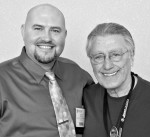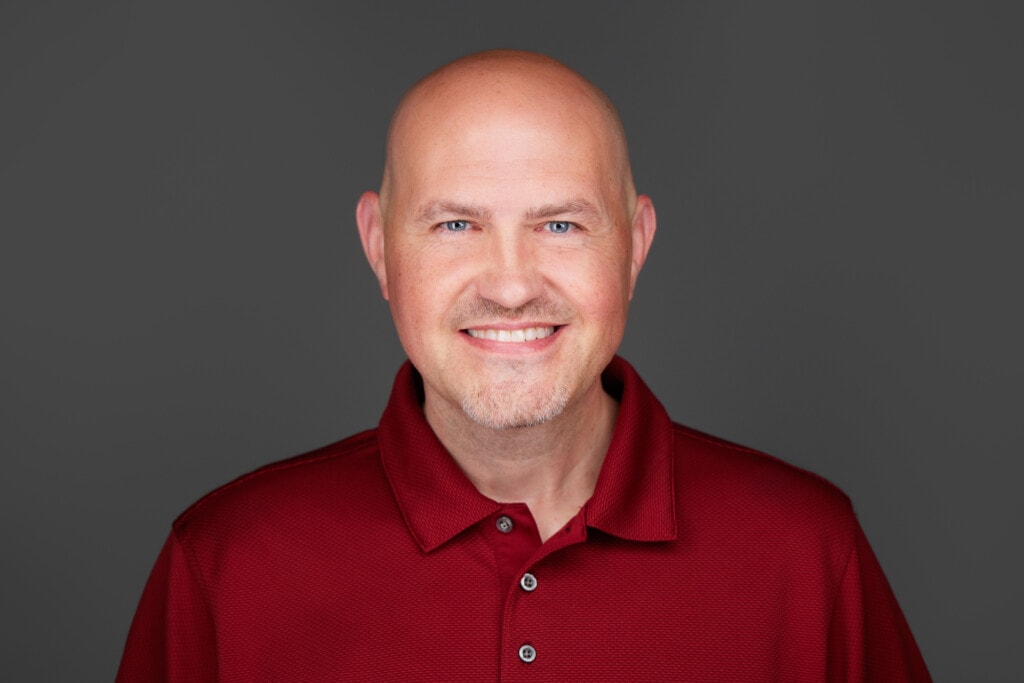 Early last month I attended the American Association of Clinical Endocrinologists (AACE) Annual Meeting in Phoenix, AZ. It was a large event that brought those related to endocrinology together from around the world.
Early last month I attended the American Association of Clinical Endocrinologists (AACE) Annual Meeting in Phoenix, AZ. It was a large event that brought those related to endocrinology together from around the world.
Going into the event I knew that a lot of the sessions were going to be over my head, and I knew that the event itself would be designed for doctors, not patients. But it was still a very informative event for me, and gave me a lot of great perspective.
Diabetes Technology
One of the first sessions I went to was about diabetes and technology. It was fascinating! One of the main takeaways I got from this session was that doctors are just as frustrated as we are about getting data from our devices. Everything talks a different language, takes a long time to access, and even longer to analyze and interpret. There was a real sense of frustration around not being able to help patients without data, and while some docs might blame the patient for the lack of information, these guys were pointing the finger at industry (patients already have too much to do).
Diabetes and Cancer
There has been a lot in the news lately about diabetes drugs increasing cancer risks. There was a session on this titled “Diabetes, Antihyperglycemic Medications, and Cancer Risk: Smoke or Fire?” by Derek LeRoith, MD, PhD.
He talked about there being a lot of confusing factors here. First off he recommended really digging into the details of the studies being presented in the news. How big were they? Was any perceived increase in risk statistically significant? Other contributing factors?
He felt that all of the drugs in question (incretin mimetics) have not been around long enough to have caused cancer, but may very well encourage growth of any existing cancer. It’s a controversial subject, and the media is not helping matters. He said over and over again that we just don’t have enough data to know one way or another yet.
His session summary was perfect, in my opinion. “What can we conclude about incretins and cancer? Basically nothing.” He did provide what I thought were a couple of excellent take home points for the crowd:
- Cancer is a major complication of both obesity and diabetes.
- Be aware. Cancer surveillance should be a part of basic clinical evaluation
- Type 2 diabetes and obesity provide an excellent environment for cancer growth and invasion
Diabetes and Autonomic Dysfunction
In this session Dr. Aaron Vinik talked about autonomic neuropathy. That’s a broad umbrella for neuropathy that messes with the nervous system. The nervous system controls a lot of stuff – everything from digestion and heart rate to pupil dilation.
One of the main ways this presents in diabetes is gastroparesis – delayed digestion. It’s a real mess when it comes to diabetes because our attempts at blood sugar control depend on a consistent rate of digestion.
 Dr. Vinik talked about detecting autonomic problems by checking for a fixed heart rate, complaints about sweating, fixed pupil dilation, and even by listening for a sloshy stomach. These can all be signs that there is trouble, and cause significant problems for people on their own. Can you imagine trying to exercise when your heart won’t respond by speeding up?
Dr. Vinik talked about detecting autonomic problems by checking for a fixed heart rate, complaints about sweating, fixed pupil dilation, and even by listening for a sloshy stomach. These can all be signs that there is trouble, and cause significant problems for people on their own. Can you imagine trying to exercise when your heart won’t respond by speeding up?
I didn’t know that soft foods and foods that have been very well cooked can be easier for people with gastroparesis to digest, but it makes total sense, doesn’t it? Cookings something well helps break apart bonds that our digestive system would have to otherwise work on.
Dr. Vinik was a real treat to listen to, and I’d attend any presentation that he was giving, no matter the topic.
Diabetes runs away from you, you’ve got to keep chasing it!
Diabetes and Genetics
Presented by Graeme Bell, PhD, “Searching for Diabetes Genes – How Far and How Well?” was a really interesting session.
It was a shocker to hear that genetically, type 1 diabetes seems like a simple disease; there’s an autoimmune trigger, they just don’t know what it is yet. Type 2 diabetes, on the other hand, is much more complicated with lots of biology left to understand.
They’ve done whole exome sequencing for about 10,000 people and haven’t learned much. As such, they’re considering moving to whole genome sequencing. The problem is becoming the amount of data. There is so much of it that they are having trouble moving it around. In fact, he said there isn’t enough bandwidth on the Internet to transfer the data.
Yikes.
This session is where a lot of it really hit home for me. On stage was a leading expert in his field, speaking to hundreds of experts in diabetes, and he was basically saying that diabetes is some complicated shit.
Bright Minds
Through the entire conference I was, for the most part, very impressed with the speakers and educators. I was also, for the most part, very impressed with the caliber of questions from the audience. The convention center was full of some incredibly smart people, almost all of whom were there working to improve the lives of people with diabetes.
It was also very clear that there is a lot about diabetes that isn’t understood yet, and that the more these bright minds learn, the more they realize just how complicated diabetes is.
It’s simultaneously terrifying and relieving to me. To know that even these brilliant docs struggle to understand diabetes and its management makes me feel like I’m doing a pretty good job surviving from day to day.
**Disclosure: Travel and lodging for my attendance at AACE 2013 was provided by Pamlab, creators of Metanx, an orally administered prescription medical food for the dietary management of endothelial dysfunction in patients with diabetic peripheral neuropathy.

